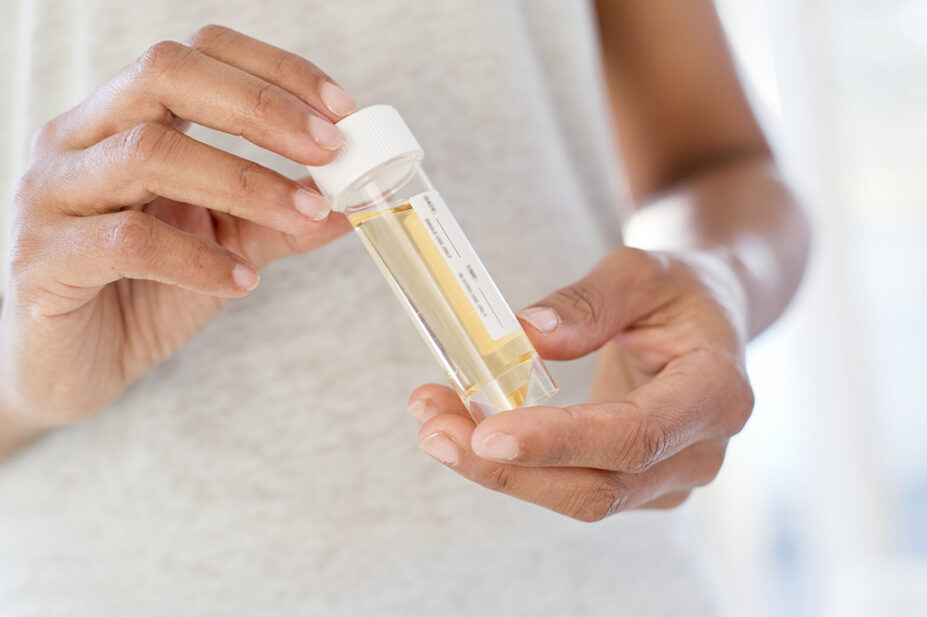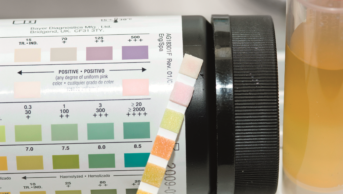
SCIENCE PHOTO LIBRARY
The National Institute for Health and Care Excellence (NICE) has said it is currently unable to recommend a range of newer point-of-care tests (POCTs) for urinary tract infections (UTIs) as a means of improving antimicrobial prescribing in primary or community care settings.
In guidance released under its ‘early value assessment’ scheme on 4 May 2023, NICE said that two tests — Astrego PA‑100 analyser with the PA AST panel U‑0501 (Sysmex Astrego) and Uriscreen (Savyon Diagnostics) — were not currently recommended because, while they “show promise”, further evidence needs to be generated on their accuracy and how well they guide antimicrobial prescribing.
Several other tests — Diaslide, DipStreak and ChromoStreak (Novamed); Flexicult Human (SSI Diagnostica); and Uricult, Uricult trio and Uricult (Aidian) — were also not recommended because “they are not expected to give results quickly enough to improve antimicrobial prescribing” in primary care or community settings.
NHS Business Services Authority data show that around one fifth of antibiotics prescribed in England in 2019/2020 were for lower urinary tract infections.
‘The Community Pharmacy Contractual Framework for 2019/20 to 2023/24’, published in July 2019, included “using opportunities in the patient pathway to make further use of point-of-care testing around minor illness which could support efforts to tackle antimicrobial resistance”, where this was supported by “robust evidence, evaluation and training”.
However, NICE said that while newer POCTs for UTIs could improve outcomes and reduce the risk of antimicrobial resistance, “the tests are in the early stages of development and research is still being done.
“Uncertainties in the current evidence mean it is difficult to assess the risks and benefits of early routine use in the NHS while further evidence is generated,” the guidance said.
“Further research, for example on test accuracy, is recommended for these tests to see if this recommendation can be changed in the future.”
However, NICE added that that current evidence already indicates that “culture-based point-of-care tests that take around 16–24 hours to give results do not give results quickly enough to improve antibiotic prescribing in primary or community care”.
A NICE quality standard update, published in February 2023, said that women aged under 65 years could be diagnosed with UTIs without the need for a dipstick test if they have two or more urinary symptoms and no other excluding causes or warning signs.
Stephen Hughes, consultant antimicrobial pharmacist at Chelsea and Westminster NHS Trust, said that the NICE guidance seems “fair” based on their shared workings.
“The new tests offer an exciting future option for greater and faster diagnosis; however, there is a need for translational research to determine how well this works in practice,” he said.
“The tests highlighted in NICE guidance all offer slightly different work up looking at different things — e.g. some look for presence of bacteria, some aim to quantity the number of bacteria, others are able to do phenotypic testing against some of our common antimicrobials. Whilst all these tests look exciting, there is still some work needed to convert these novel products into functional clinical pathways.
“While I expect all the tests works well in uncomplicated UTIs, such as young females where single pathogens at high concentrations are usually seen, how well it works in our complex patients … is less clear. I suspect it will be less robust … but this will only be proven through some piloting work or in a research setting.”


